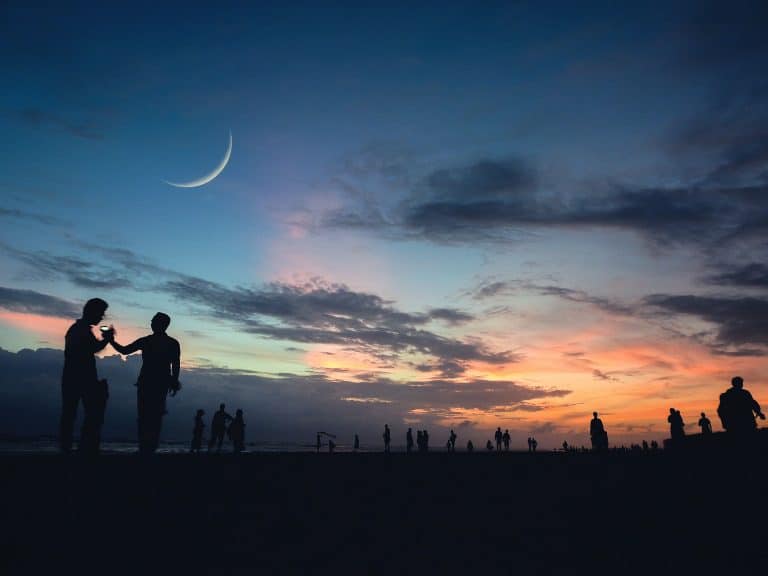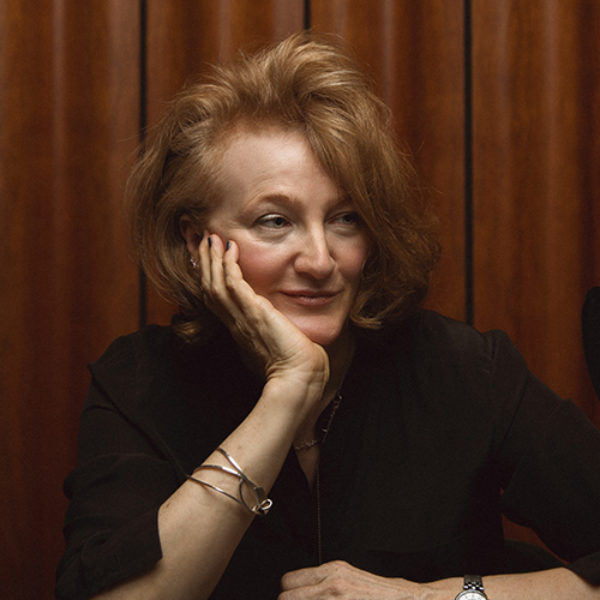
Image by Sadman Sakib/Unsplash, Public Domain Dedication (CC0).
A Glacial Sense of Time
Martin Marty is a singular figure in our world. There is no one in my lifetime — no one — who has had such an expansive view of religious history and human religiosity. He is the rare scholar who has exuberantly connected his own long life of faith with a wise attention to the lived reality of the traditions and social trends he has studied.
My conversation with Marty in the early days of my public radio show laid a foundation for all the interviews to come. Looking back now, his wisdom and wit are as fresh as before and his prescience — the fruit of what he called, in our conversation, his “glacial” sense of time — is astonishing.
As my tribute to the inimitable Marty, I offer up some highlights of his own words from a decade ago. We inhabit what feels like a changed world but it is a world Marty saw evolving in its danger and its promise. I am grateful for this invitation to write about him, as it has re-planted me in his wisdom for the days and decades ahead.
On fundamentalism (and, by the way, what we’re now analyzing as populism)
Martin Marty: A phrase we used in The Fundamentalism Project: “Around the world, there is a massive, convulsive in gathering of peoples into their separatenesses and over-againstnesses, to protect their pride and power and place from others who are doing the same thing.” Now, look at American life. We don’t do it the way they do it in Saudi Arabia or Afghanistan. We don’t veil women or anything like that, but we’re clustering more tightly. “We’re the virtuous, and they’re the vicious. We’re the good, they’re the evil.” Our assignment was to study the militancies. When we started this, a historian friend said, “When you’re studying American fundamentalism, Marty, remember there are no machine guns in the basement of the Moody Bible Institute in Chicago.” We were really studying a different kind of thing there, and yet there are certain things everybody had in common.
Fundamentalism is a very modern packaging. That is, it’s born when there’s an assault on values that you have and are uncertain about. There has to be a threat to you as a group identity or to you as an individual. So the most important word in fundamentalism is, you react. Very few fundamentalists are concerned about things that traditionalists and regular conservatives and orthodox are… There’s a very selective agenda. The whole left-behind theology is not the old-time religion. It was invented in the 1840s, which is really the modern world.
Krista Tippett: For someone like you.
Mr. Marty: That’s right. I move glacially, not with a hurricane.
*
Mass media helped produce fundamentalism because — first stage was born in the early radio; the second stage, Billy Graham, early television; the third stage now, Internet. What do you do? It comes at you with full force. You might try laws against obscenity and pornography. You might try to boycott Disney World. That doesn’t do much. You’re better off starting your own television networks. “Mass media are what messed up the intimacy of my family life; I’ll turn it right back upon itself.”
*
I’ve often said, “If Billy Graham had been born mean, we’d be in terrible trouble,” because he had so much power, so many gifts, and so on. One of my distinctions in religion is not liberal and conservative, but mean and non-mean. You have mean liberals and mean conservatives, and you have non-mean of both.
On the decline of Protestantism and the future of religion
Mr. Marty: I, in 1956, was invited to join the staff of The Christian Century, which was the towering Protestant voice. Today it still is, if not towering, a strong voice, but it’s ecumenical. It has a lot of Catholic writers; it has a lot of evangelical writers. But at that time, it was Protestant, and it was anti-Catholic. In 1950, on the cover of The Christian Century, there was an article, “Pluralism, A National Menace.” Pluralism was they’re worried about Catholicism. When I joined the staff five years later, pluralism was the best game in town. My first visits to campus, you always had one priest, one minister, one rabbi; that was called pluralism back then. But through that all, the Protestant still was in a privileged position. It simply was a kind of a reflex: “We’re the largest. We’re the ones who left our stamp on America’s literature, its poetry, its statecraft, etc.”
I’m going to say something in case I’m sounding critical.
Ms. Tippett: You can sound critical if you’d like to.
I’d be happy to be critical, but I don’t want to be distorting what I want to be. And that is to say, for all of that reflexive sense of establishment, I think I’m being a neutral, value-free historian when I say I don’t know any time in human history that somebody that powerful yielded that gracefully. In the previous century, Protestantism was often used — white Protestantism — to enslave, and it was used to justify the reservating of the Indians. But in the twentieth century, Protestants have sort of said, “All right, you’re making your case. We’ll make room for you.” They weren’t doing that much before the mid-’50s, but from then on in, they have done it even at the expense to their own identity.
Ms. Tippett: I just wonder, personally, is the decline of America’s Protestant majority something that troubles you?
Mr. Marty: I don’t think I wake up in the morning having great worries about that. You can tell from what I’ve said I have a global view of humanity and of religion, and it moves around a lot. In the 1930s a great Catholic, Hilaire Belloc, said, “Europe is the Faith, and the Faith is Europe.” Well, that was true then. Now the cathedrals are empty, but their granddaughters are full in Latin America, Asia, and Africa. I certainly think that some things borne by the Protestant message would be a great loss. One of its gifts to America was its sense that we’re scripted. It’s a scriptural faith, it’s a Christ-centered faith, but it doesn’t mean that all virtue and all morality goes with you. And I think that’s been a nice irritating voice in classic Protestantism, which is, no matter how far along you’d come, God was holding you to a higher standard.
I don’t think we’re going to wake up some day and see total change. There’s a strange thing that hundreds of years after the vital life of a religion is past, there’s still a strong influence. We’re still living off some of the Greek religious influences. We’re living off a lot of medieval Catholicism. Our very universities are inventions of that. Our hospitals are inventions of that. So in a sense, meanings, ideas — in this case, ideas of liberty, freedom — that came very often from Protestants will live on even if not everybody goes to church. Still, the churches have been the places where these stories get renewed regularly.
On what is ultimately sustaining in life
Mr. Marty: I draw nurture from the family. We love friends. I can’t say enough — I once wrote a book about friendship. In a cold, brutal world, you can’t do much better for somebody else than to stimulate friendship. And the model there again is God. As distant as God’s supposed to be, God also condescends and is our 3:00-in-the-morning friend. So I’m nurtured by all those kinds of things.
This essay originally appeared in Sightings, a publication of the Martin Marty Center at the University of Chicago Divinity School, as part of a series commemorating the 20th anniversary of the Martin Marty Center for the Public Understanding of Religion, as well as Martin Marty’s 90th birthday. Sign up for their email newsletter.
